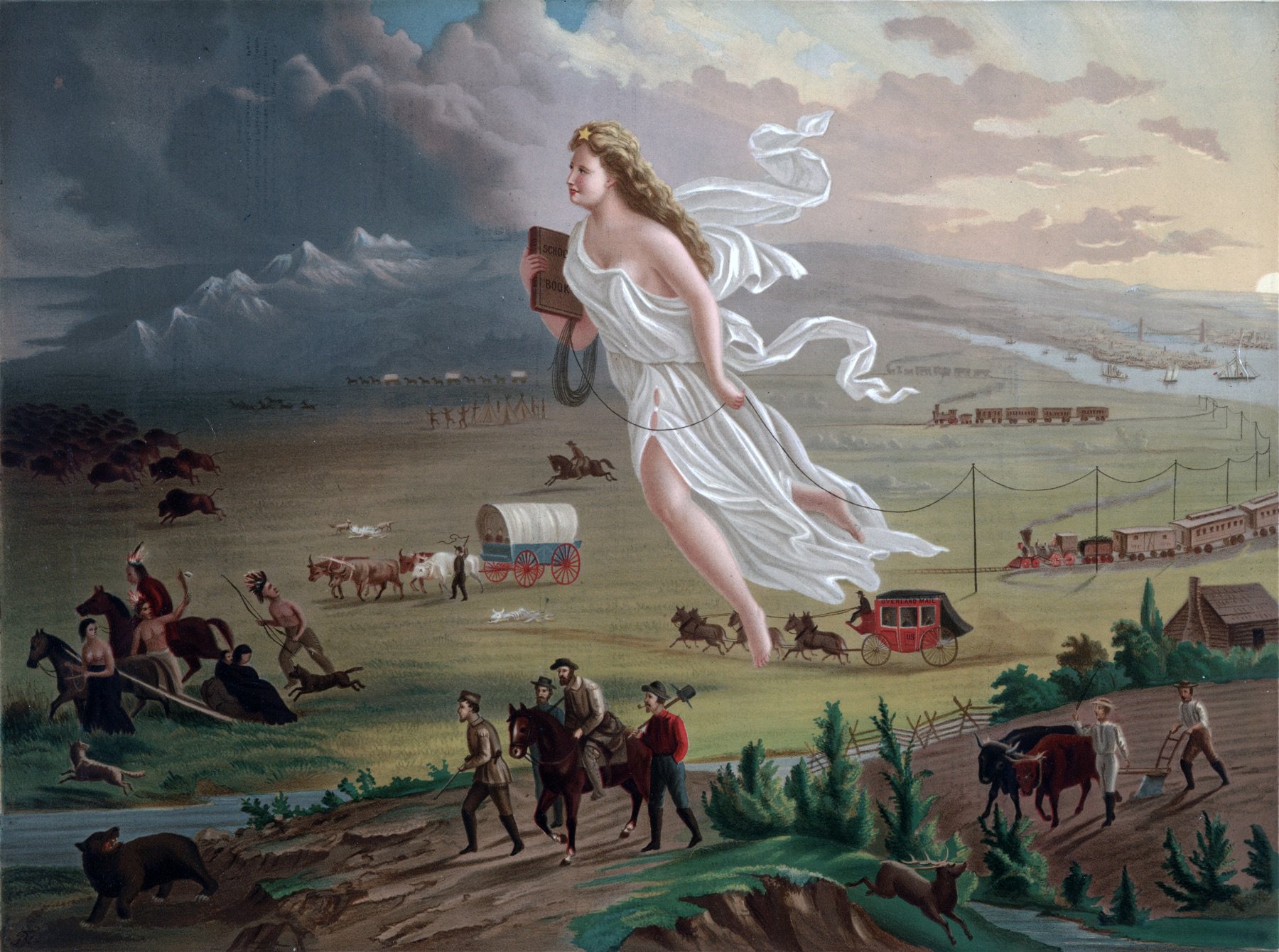“This illustration resonated with U.S. residents in the post–Civil War era in part because the vision of expansionism as “progress,” and progress defined as the introduction of domesticity to the wilderness, fit with the hegemonic gender norms of the era. After the upheaval and staggering violence of four years of Civil War, survivors turned away from heroic individualism and looked toward work and home for meaning. The growth of the country, “from sea to sea,” in the decades before the war was idealized as an essentially peaceful process, a period when harmony reigned and Americans were unified in pursuit of their destiny. American Progress is a vision of expansionism, both domesticated and restrained.”
From Amy S. Greenberg, Manifest Manhood and the Antebellum American Empire — Cambridge University Press, 2005.
Also as the book cover on Does Technology Drive History? The Dilemma of Technological Determinism.

